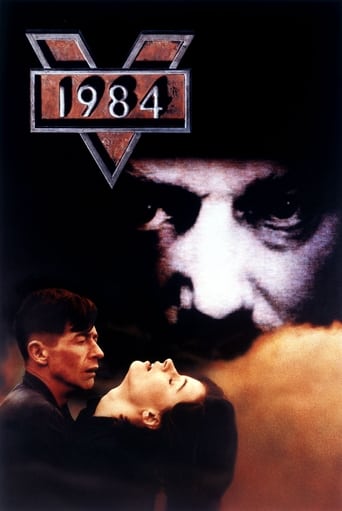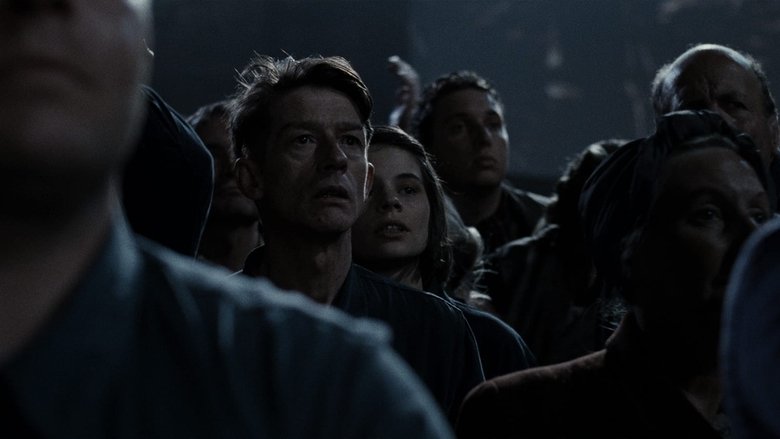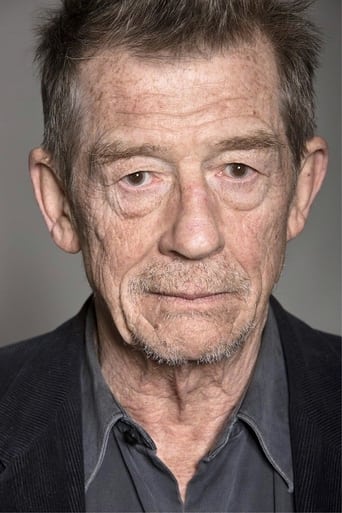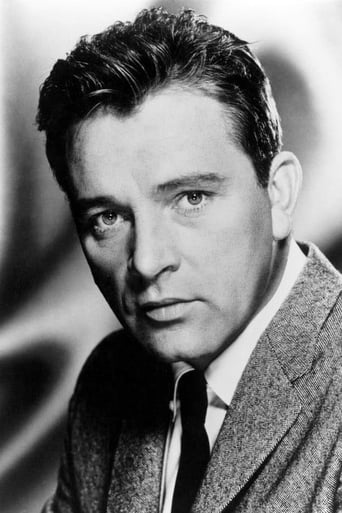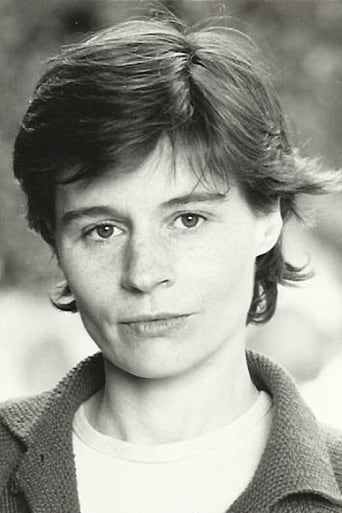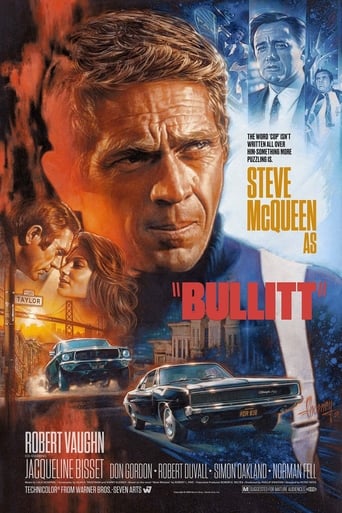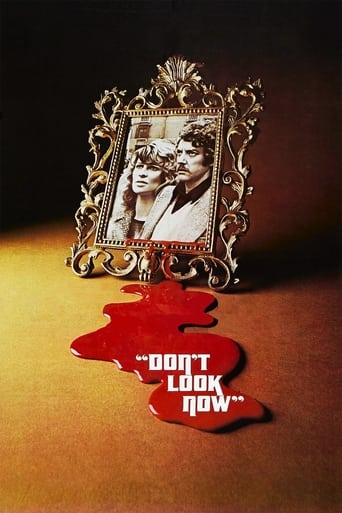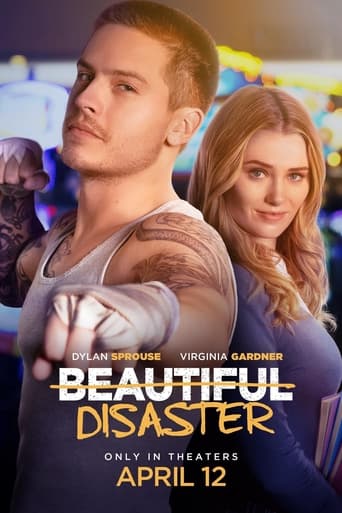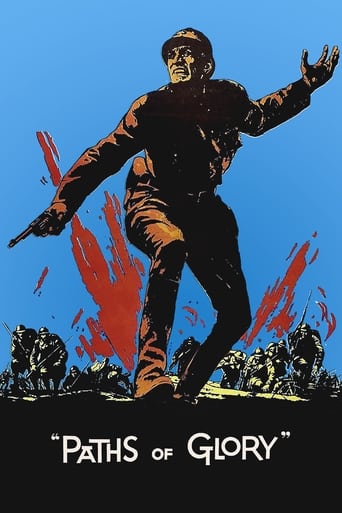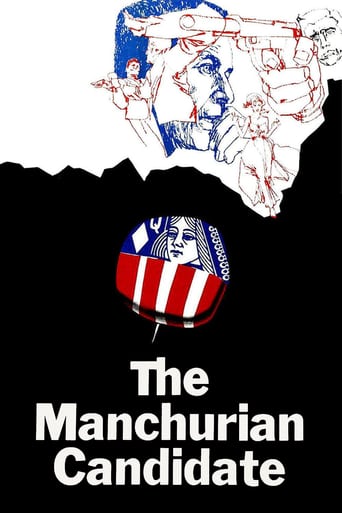Nineteen Eighty-Four (1984)
George Orwell's novel of a totalitarian future society in which a man whose daily work is rewriting history tries to rebel by falling in love.
Watch Trailer
Free Trial Channels
Cast


Similar titles
Reviews
Don't listen to the negative reviews
The performances transcend the film's tropes, grounding it in characters that feel more complete than this subgenre often produces.
The plot isn't so bad, but the pace of storytelling is too slow which makes people bored. Certain moments are so obvious and unnecessary for the main plot. I would've fast-forwarded those moments if it was an online streaming. The ending looks like implying a sequel, not sure if this movie will get one
If you're interested in the topic at hand, you should just watch it and judge yourself because the reviews have gone very biased by people that didn't even watch it and just hate (or love) the creator. I liked it, it was well written, narrated, and directed and it was about a topic that interests me.
When a US Presidential spokesperson recently used the term alternative facts to explain away inconsistencies between the White House version of truth and objectively verified truth it triggered a global revival of interest in the George Orwell classic Nineteen Eighty-Four (1949). Single- handedly, the term alternative facts caused a run on the 68-year old novel and led to cinemas across America re-screening the 1984 film adaptation. Acknowledged as one of the most important literary works of the modern era, 1984 has been adapted to film, television, radio, stage, music, and other popular culture platforms and it continues to resonate as a contemporary dystopian warning about how power can be used as a weapon to crush truth.The film's plot line, setting and acting are starkly minimalist. Oceania is an imaginary futuristic totalitarian society that is in ruins from perpetual war. The people are under constant surveillance and there are screens everywhere broadcasting propaganda that keeps the masses devoted to leader Big Brother. The Party controls everything, including human thought and the facts of history. The masses must publicly demonstrate their loyalty to Big Brother, personal relationships are banned, and any ideas contrary to Party Policy are thought-crimes punishable by death.The film's protagonist, Winston Smith (John Hurt), is a nondescript Party apparatchik whose job it is to review historical documents and insert alternative facts to suit ever-changing Party policy. He scans newspapers and books for items officially deemed 'fake news' and expunges the record. Anyone who has contradicted Party policy has their entire identification "vaporized" as if they never existed. Amidst this dystopian oppression, Winston knows that what he is doing is wrong but is powerless to act until he meets a likeminded worker called Julia (Suzanna Hamilton) with whom he can discuss his innermost thoughts. Their illegal affair is uncovered by the Thought Police and senior Party figure O'Brien (Richard Burton) tortures Winston, ultimately re-programming his brain so he can believe contradictory facts and opinions.This is a film rich in metaphor and ironic distortions. The key institutions of Oceania exist solely to manufacture 'fake news' and to psychologically manipulate the will of the people. The Ministry of Truth produces endless falsehoods and historical revisions while the Ministry of Love specialises in torture, brainwashing and executions. The Ministry of Peace ensures that war is constantly waged against vaguely defined enemies to keep the masses from complaining about the food shortages that are disguised as surpluses by the Ministry of Plenty. The Party succeeds by controlling the only accepted language called Newspeak, the sole purpose of which is to minimise vocabulary so people cannot articulate their own memories because the words no longer exist. With memories gone and facts invented, Party control is complete.In terms of contemporary cinematic standards, 1984 stands up exceptionally well for a film made 33 years ago. The principal actors are brilliant in depicting an expressionless and alienated existence. The late John Hurt had the rare ability to express his thoughts entirely through terrified eyes that stared blankly from an impassive face and he used this to full effect in some truly frightening scenes. Excellent cinematography conveys the claustrophobia of a world diminished by totalitarianism. The use of a desaturated and depressive colour palette creates vivid contrasts with scenes where Winston imagines what the real world must have looked like.Some may wonder how the depicted extreme nihilism of Orwell's 1984 can have any relevance to politics today. While the dystopian world that Orwell predicted has not materialised in a physical sense, his warnings about the manipulation of truth and political corruption are entirely prescient. The fabricated worlds of alternative facts, fake news, and policy spin are corruptions of modern political life and their threat to civilised discourse can only be contained by the power of language to speak the truth.
"Power is tearing human minds apart and putting them back together in new shapes of your own choosing." I think it's easy enough to say that the book by Orwell of 1984 is still valuable because, simply, it is, from the quote above to many, many others, its a cultural touchstone - though there's two things that may be taken for granted: first, that the film itself gets to the dark, horror-movie tone of paranoia and grime and decay and moral impoverishment (and the desperate search for it) that was in the book, and secondly that for all of the lines that people quote, people may not fully grasp how much emotion is conveyed in this story, that when one looks at the *people* there's so much to mine there. This is actually what makes the book so great, and the film too, though it's one of 'those' great films I'm not sure when I'd have the heart to watch again (Brazil, a massively looser version, is more-so but then thats a comedy in a lot of ways, but I digress).What I think Radford does so well along with Roger Deakins's soaked-in-a-dirty-rag cinematography (which I mean as a sincere compliment) is get us into this world and it's one of oppression, devastation, and totalitarian control and keeps us there, so that when it comes time to see the "green world" of that landscape with the trees and those hills, it's more impactful and more like Winston (and us by proxy) being exposed to what is closest to... art, to beauty.When I say emotions, I mean that it's in the actors conveying it - Hurt (who I miss all the more now seeing this a few months after his passing), Suzanne Hamilton to an extent, and in his way how Burton is so completely and wholly wound tight (is it the same as restrained, I'm not sure) - but it's also in key moments that Radford gets right. It's one thing to get the full weight of the terror that Winston feels when he's strapped to the table in the last third and things get rougher and harder to watch than before (Hurt sells it especially, but it's Burton with his cold demeanor that sells it furthest of all, we know he's done this countless times before and will do it again), or those little moments between Hurt and Hamilton when in bed together, naked and open to each other, and how their 'love' is stifled/compromised to a large extent by how they were raised and the world they're in. But there's more.Take the woman who lives below Winston was an extraordinary touch, and it's something that got me thinking after the movie ended (as it did in the book, but this is something that a movie could and does do better): Winston observes that it's so out there to think that a song that was made up by a machine could be performed by this woman so beautifully. In just that there's the capacity to see how someone lost in their seeming day-to-day affairs, can bring artistic depth and expression and feeling. While Radford and Deakins don't show her too close-up, that's fine: we know how Smith reacts to it (and maybe Julia, though perhaps her connection to her comes too late, if (spoiler) it's real at all), and that's what counts. Or to another example, the other man who Smith briefly talks to about lending razors who shows up when Winston is imprisoned - what did he do exactly? All that matters is he is there and fingers Smith. But, again, the actor is fully organic in this world.If I could nitpick (or maybe it's a legit criticism, I may feel different about the movie later on or even tomorrow), I wondered if there could have been *more* Big Brother imagery - we get that one face in the screen looking on, and then the woman's voice, coming in like the rancid school-marm, on the intercom. But there were a scene or two I wondered if there would be more cameras watching things, or if it was only on the TV screens. Again, a nitpick, since the message is still conveyed and the more important aspect of Big Brother and it's control of society is shown by Radford and company: language and the control of it. This is the part, along with critical thinking in society, that remains relevant as when Orwell wrote it in 1948 as it did in 84 when the film was made and today in 2017 when now Orwell gets quoted this way and that on Twitter and Facebook (but of course the *quotable* bits, I'm not sure how many would want to mention the bit about the rats much).The tricky thing with the film adaptation of this was to make it either *too* oppressive in its drama and horror, which it almost goes to, or trying to soften it or veering too much into satire. There is inherent satire in the text - Orwell constantly did that as a writer and thinker - but one needs to take this as a work as if it's happening as we see it. The remarkable thing and power of the film is that it simply works as a film unto itself, showing us through the power of cinematic grammar, dream-like imagery and occasionally in the cutting, and performance and music (hey Eurythmics, that's some atmospheric s*** right there), that this story not only retains its intellectual power but it gains a little in the pathos department. And that final scene in the cafe.... damn.
I always recommend that every person read 1984, it is one of the darkest and most depressing stories ever written, I was never required to read it in school, I read it on my own. I just bought it one day while I was traveling across country in a Barnes and Noble, and it certainly changed my perspective and changed my life, in a way, because it changed the way I thought. Both "1984" and "A Brave New World" are based off the novel "We", but if "A Brave New World" is through control of genetics, hedonism, and exposing them to constant stimulation, emotional and otherwise, then 1984 is the other side of the coin, a story about control through absolute coercion and lies, crushing the will. Both exist in perverted society, but they often co-mingle and exist together more than apart, most of modern media exemplifies this well, manipulation of both the truth and emotions.I think it it would be very difficult to ever truly do the book 1984 perfect justice because the vast majority of this story revolves around what we think, and in the case of Wintston, what he knows he should not think, but he cannot help thinking, and doesn't want to stop thinking. This is extremely difficult to convey without a lot more voice overs of Winston's internal monologues or more external dialogue than a film adaptation of 1984 should have, ever. It is also very hard to depict the ever shifting "histories" portrayed in the book "He who controls the past controls the present, he who controls the present controls the future." That is best shown in the movie when Winston ask if Julia believes the resistance is real, and she answers by saying "No. None of it is real." and Winston's thoughts about the truth being erased and changed to a lie and then back again. The movie does a decent job of conveying it, but it is certainly not as effective as the book. What this movie does do well is get is the bleak, dark, depressing, and oppressive tone of the book. The visual look nails exactly what the the book conveys, and Winston looks about as pathetic as he is described in the book. John Hurt does a fantastic job because humans in this world, in a way, are not humans at all, but rather shadows of themselves, and you can see the internal conflict, very slightly, on his face, even as he hides it. Winston was fascinated with the Proles, in the book, because he was fascinated with with freedoms, their seeming joy, even though they were uneducated, and unaware, he was jealous of that lack of awareness and freedom that it gave. This is not something that is conveyed extremely well in this film sadly, as it was an integral part of the book, just as much as his relationship with Julia, the Proles almost take on a mythical proportion to him in the book. Despite those caveats, I still feel this version is the best one out there. It really captures the overall feel of the book fairly well. It feels hopeless and oppressive. The difference between the book and the film is, for me, the middle section of the book, and some part early on, up until the final 1/4, there was a lot of hope in Winston's thoughts. I knew nothing about the outcome or content of the book, and this created a very unique experience, while the film did not match it the first or second time, and I felt at times, lingered away from Winston too much, with images of tanks and explosions. The final act of the film, for me, captured very well the feel of the book, and it made me just as angry watching it, as I felt reading the book, even if the ending is altered a big. I would be curious to see how people whom have never read the book would react to this, but this is one case where I would recommend reading the book first, if because the impact of the book would be reduced a little bit by knowing the majority of the events already. The idea that there is "no truth", and changing history to suit a person's or country's agenda, is extremely prevalent today, telling people they need to believe something that isn't actually true, and will hurt those who do not. The movie still conveys these things well, and I do feel it is worth watching.God Bless ~Amy
Dear Michael Radford, you did a great job adapting Orwell's novel for the big screen.I loved the tracking shot of all those sinister looking people at the beginning of the movie. What a way to start the film. You had me hooked! The close ups of John Hurt's cold and dry face was used to great effect. It sort of underscored the lack of joy and humanity in him. The film was filled with such thin, wiry and robotic looking actors who gave the impression of slowly wasting away. The oppressive post-war imagery characterized by scenes of destruction and decaying grey buildings perfectly evoked the atmosphere in Orwell's novel. The sets were magnificent. I know it is an odd word to use for such a depressing film. But Winston's workplace and O'Brien's office deserve special mention. This must be Alan Cameron's best work. He later worked mostly in commercial big budget films. If anxiety was the natural state of 20th century man (from Mailer), John Hurt's jaded facial expressions and scraggy demeanor expressed all the anxiety of living in a totalitarian state. Winston Smith must be one of his best roles. Best Regards, Pimpin.(7/10)

